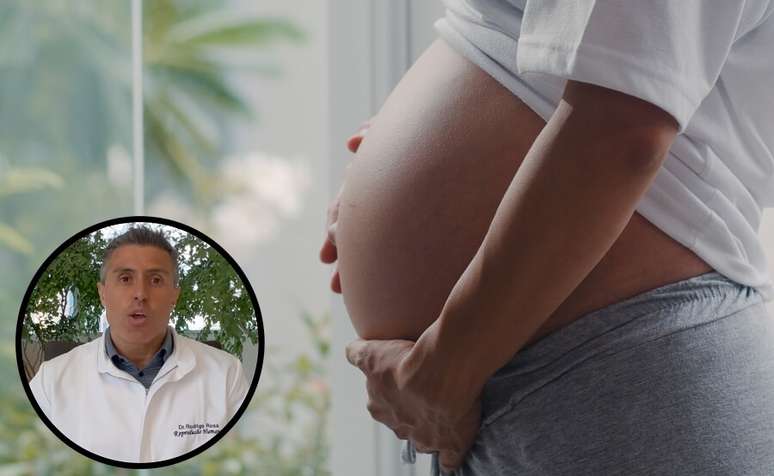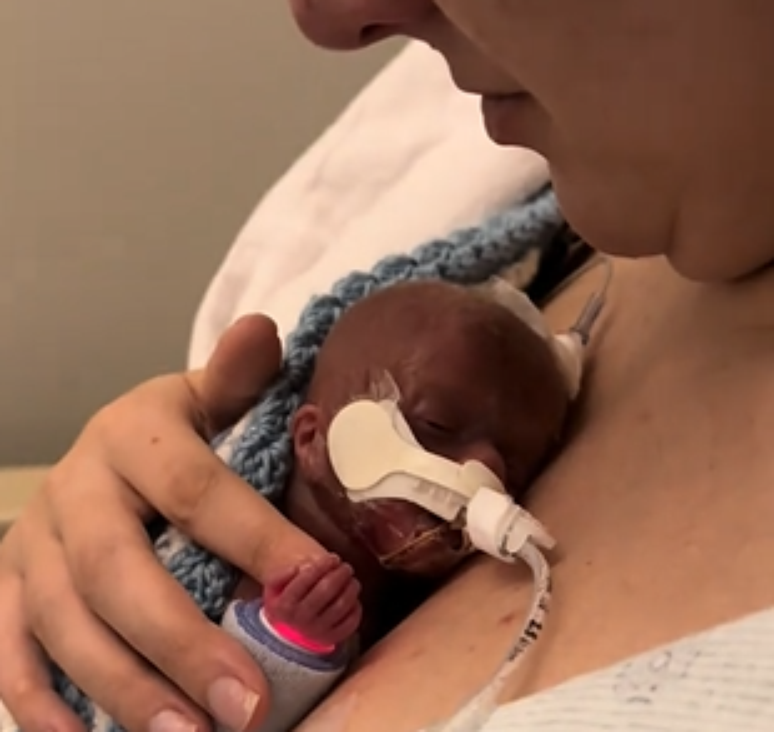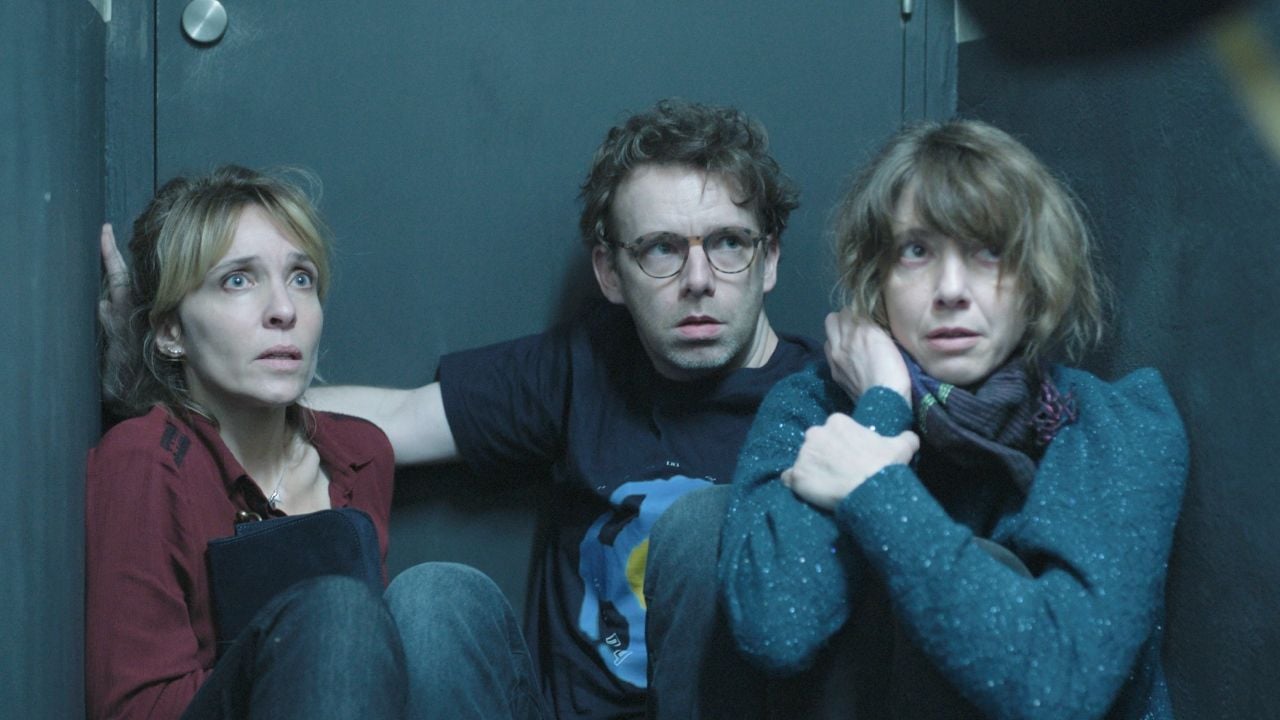There are numerous habits you can adopt to increase your chances of getting pregnant.
-
BY PARTICIPATING

5 things a woman should do differently to finally get pregnant
-
BY PARTICIPATING

Plastic Surgery Trends in 2024: No More SpongeBob Shape!
-
BY PARTICIPATING
Candidiasis can affect various parts of the body, you understand with Jairo Bouer
Even couples with no barriers to conceiving can take time to get pregnant naturally, so much so that in the first three months of trying, the chance of getting pregnant in any month is 20%.
“When we think about planning a family there are paths to follow. The main recommendations concern lifestyle habits. Good nutrition, physical exercise, maintaining a healthy weight, stress control and avoiding addictions – cigarettes and alcohol”, explains obstetrician-gynecologist Rodrigo Rosa, specialist in Human Reproduction and clinical director of the Mater Prime clinic, in Sao Paulo, and founding member. from the Mater Lab laboratory.
Lifestyle changes
The way you live can have a big impact on your fertility, according to Rodrigo, and making some changes to your lifestyle can increase your chances of conceiving.
“For example, quitting smoking and avoiding recreational drug use benefits the overall reproductive health of men and women. Other lifestyle changes we recommend making when trying to get pregnant include: moderate caffeine consumption (1-2 teas/coffees per day); consume a safe amount of alcohol (including at least two alcohol-free days per week); do physical activity regularly, but not excessively (30 to 40 minutes three to six times a week); maintain a healthy weight (IVF is less successful if your BMI is above 30),” she explains.
“A healthy, balanced diet is essential for overall and reproductive health. Studies have shown that omega-3s can improve fertility in women, while diets high in trans fats can reduce fertility. Diet also affects sperm quality in male partners: For example, men who consume fish, shellfish, poultry, whole grains, and fruits and vegetables typically have better sperm analysis than those who eat a high-sugar diet and processed meats and grains. It is also important to note that before enjoying your favorite dishes, you should avoid heating food in plastic containers. This reduces exposure to estrogenic material, which can also affect fertility,” says the doctor.
Supplements
Folic acid is the main supplement recommended for women trying to get pregnant.
“Although folic acid does not directly affect fertility, it is very important for reducing the baby’s risk of spina bifida, a birth defect in which the developing baby’s spinal cord does not develop properly. We also recommend taking a good quality multivitamin when trying to get pregnant,” says the doctor.
“But the best thing is to seek out a human reproductive specialist, who will order tests and be able to identify if there is any nutritional deficiency for a more precise supplement indication,” he explains.
Stress and anxiety control
It’s normal to feel overwhelmed or anxious and experience a lot of uncertainty as you embark on your fertility journey.
“However, feeling under constant stress can affect your hormones and, in turn, reduce your chances of getting pregnant. Therefore, you’ll want to find a stress management technique that works for you and your lifestyle, which may involve simply stopping and slowing down or calling someone you trust to share how you’re feeling. Other ways to reduce stress levels include exercise, acupuncture, and engaging in a relaxing activity (cooking, gardening, drawing),” says Rodrigo.
Watch out for “programming”
One of the ways to get pregnant naturally is to plan sexual intercourse, called programmed coitus, which significantly increases your chances of getting pregnant successfully.
“Of 100 fertile couples who conceived without planned sexual intercourse, 50% became pregnant within three months. On the other hand, 76% of similar couples who used a method of planned sexual intercourse conceived within the first month of trying,” she explains.
According to the expert, women have a fertile window of about five days before to one day after ovulation. While sperm can survive 3 to 5 days in the uterus and tubes, an egg usually survives only 12 to 24 hours in the tubes.
“This means that to have the best chance of getting pregnant, sexual intercourse should occur in the 2 to 3 days before ovulation. Cycle length varies from woman to woman, so finding the right time to have sex will depend on the individual. Hormone tests that measure LH (a hormone that increases and leads to ovulation) can be used to help figure out the best time for sexual intercourse. Other timing techniques include having sex when the cervical mucus is slippery and clear, or when your partner’s basal body temperature is lowest (usually increases after ovulation),” the doctor says.
There are also several smartphone apps available that help you track your cycle so you have the best possible chance of conceiving – they can help you, but don’t invest all your money in them.
“Couples should decide how often to have sex based on their relationship and dynamics, as even daily intercourse is associated with higher levels of stress. Typically, we advise couples to have sex every day before ovulation to increase their chances of getting pregnant,” she says.
Seek help
Couples in which the women are under 35 are advised to seek medical attention after 12 months of frequent unprotected sexual intercourse.
“As fertility declines with age, women between 35 and 40 are advised to seek specialist advice after 6 months of trying. Some women who may need to seek help despite having been trying for less than 6 months include women over 40; with oligomenorrhea/amenorrhea (infrequent or absent menstruation); with a history of chemotherapy, radiotherapy, or advanced endometriosis; with known or suspected uterine/tubal disease. Furthermore, in the case of men, those with a history of groin or testicular surgery, adult mumps, impotence or any other sexual dysfunction, chemotherapy and/or radiotherapy, or a history of subfertility with another partner should seek medical help,” explains.
The fertility specialist may ask the patient to undergo some fertility tests to fully understand their fertility needs.
What if none of this works?
Couples who have been trying to conceive for a year often need assistance with some type of fertility treatment. Several options are available depending on your individual fertility needs, including:
• Induction of ovulation
According to Rodrigo Rosa, ovulation induction involves taking medications (pills or injections) to stimulate the production of hormones that grow and release an egg from the woman’s ovary.
• IUI (intrauterine insemination)
Intrauterine insemination, explains the doctor, involves the introduction of a large number of concentrated sperm into the uterus. By doing so, this increases the chances of the sperm meeting an egg and causing fertilization.
• IVF (in vitro fertilization)
IVF is a procedure that involves fertilizing an egg with sperm outside of a woman’s uterus, before being transferred back into the uterus for the remainder of the pregnancy.
“There are two phases in an IVF cycle: egg retrieval and embryo transfer. Egg retrieval is performed in hospital under light anesthesia and typically takes 15 to 20 minutes. Patients typically arrive home 90 minutes later and may need pain medication for the 1 to 2 day recovery period. Embryo transfer is a short, ultrasound-guided procedure lasting five minutes. Patients do not usually require anesthesia and can return to work later,” explains the doctor.
• IVF with ICSI (intracytoplasmic sperm injection)
Typically, standard insemination is used during the IVF process: the sperm meets the egg and fertilizes it in a laboratory dish.

“However, intracytoplasmic sperm injection (ICSI) is generally recommended when poor fertilization results are suspected or confirmed with standard insemination. ICSI involves directly injecting a single sperm into the center of an egg, bypassing the outer covering of the egg and making fertilization a little easier,” he says.
inspires transformation in the world of work, in business, in society. Compass, a content and connection agency, is born.
Source: Terra
Ben Stock is a lifestyle journalist and author at Gossipify. He writes about topics such as health, wellness, travel, food and home decor. He provides practical advice and inspiration to improve well-being, keeps readers up to date with latest lifestyle news and trends, known for his engaging writing style, in-depth analysis and unique perspectives.










